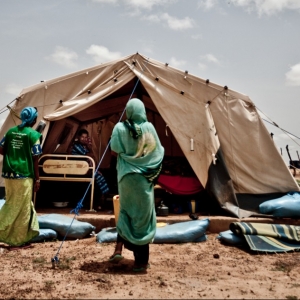Federal Water Tap, July 27: Pebble Mine Clears a Hurdle
The Rundown
The Army Corps publishes its environmental review of the highly contested Alaskan mine. Senate Democratic staff detail the status of utility shutoff policies during the pandemic. FERC proposes revisions to dam safety regulations. EPA inspector general’s report says that integrating environmental justice into the agency’s work is a top management challenge. A large California irrigation district seeks title transfer of water assets. Congress approves a parks and conservation bill. A House committee will hold a hearing on drinking water regulation. And lastly, the GAO says that better communication is needed for Lake Ontario water-level regulation.
“Our work has indicated that the EPA continues to struggle with integrating environmental justice across all programs and Regions.” — Excerpt from an EPA inspector general’s report on the agency’s top management and oversight challenges in the next two years.
By the Numbers
1,034: Miles of buried pipeline to which Westlands Water District, a powerful provider of irrigation water in California’s Central Valley, is seeking to gain title. Ownership currently rests with the Bureau of Reclamation, which is looking to expand title transfers of water projects in the West. A former lobbyist for Westlands is currently the head of the Interior Department, which is the parent organization to the Bureau of Reclamation. (E&E News)
News Briefs
Pebble Mine Clears Hurdle
The Army Corps of Engineers released the environmental impact statement for the highly contested Pebble Mine, a proposed open-pit copper, gold, and molybdenum mine in southwest Alaska.
The Corps claims that the project would not cause a “population-level decrease” in fish or wildlife, the main point of contention for opponents of the mine. The review does acknowledge impacts to specific sites.
The mine has more hurdles before it can begin construction. Besides the inevitable legal actions, mine developers need to secure permits from the Coast Guard and Bureau of Safety and Environmental Enforcement, the Anchorage Daily News reports. That’s in addition to a state permitting process that is expected to take three years.
The other permits are required for the infrastructure that would be built to support the mine: a 270-megawatt natural gas power plant, a natural gas pipeline, a port, and access roads.
The project was vetoed by the Obama administration due to concerns that it would harm a thriving wild salmon fishery in Bristol Bay. The mine would be located in the headwaters of the bay. Rejecting those worries, the Trump administration revived the project.
Dam Safety Revisions
The Federal Energy Regulatory Commission, which oversees hydropower projects, will revise certain parts of its dam safety regulations.
FERC proposes to change the dam safety review process and require that independent consultants be knowledgeable about specific site conditions. The commission also proposes to update its engineering guidelines.
The changes stem from a review panel that FERC convened following the Oroville Dam emergency in February 2017. In that incident, the main spillway fractured and the emergency spillway eroded.
Public comments are being accepted through September 22. Submit them via www.ferc.gov referencing docket number RM20-9-000.
Great American Outdoors Act Passes Congress
Congress sent a bill to President Trump that will benefit parks, conservation, and outdoor recreation.
The Great American Outdoors Act does two things: establishes a National Parks maintenance fund that is capped at $1.9 billion a year and permanently authorizes the Land and Water Conservation Fund at $900 million a year.
The funds are seeded with money from energy leasing and offshore oil and gas royalties. The deposits are automatic and do not require the appropriations process.
Studies and Reports
Utility Shutoff Status
Only 10 states and the District of Columbia have moratoriums on electric, gas, and water service that apply to nearly all of their residents, according to a Democratic staff report from the Senate Environment and Public Works Committee.
Twenty-two states have partial shutoffs protections. For water in these states, many orders apply only to regulated utilities, which does not include municipal providers. Most people are served by municipal water utilities.
In context: Water Shutoffs Are Suspended, But the Bills Will Still Be Due
Lake Ontario Regulation
The binational commission that oversees water levels on Lake Ontario should have a clearer communication strategy about its actions, according to a Government Accountability Office report.
The International Joint Commission, composed of Canadian and U.S. representatives, put in place Plan 2014 that allows lake levels to fluctuate within a greater range. The plan’s implementation corresponded with historically wet conditions that pushed the lake to record highs in 2019.
The GAO said that informing stakeholders — property owners, shipping companies, recreational users, municipalities — about how the rules change the management of the lake requires the IJC to adopt “the best practices of a public relations strategy.” Namely, identifying a target audience, tailoring its message, and monitoring responses.
On the Radar
House Drinking Water Hearing
On July 28, the House Energy and Commerce Committee hosts a virtual hearing on reforming the nation’s drinking water standards.
Federal Water Tap is a weekly digest spotting trends in U.S. government water policy. To get more water news, follow Circle of Blue on Twitter and sign up for our newsletter.
Brett writes about agriculture, energy, infrastructure, and the politics and economics of water in the United States. He also writes the Federal Water Tap, Circle of Blue’s weekly digest of U.S. government water news. He is the winner of two Society of Environmental Journalists reporting awards, one of the top honors in American environmental journalism: first place for explanatory reporting for a series on septic system pollution in the United States(2016) and third place for beat reporting in a small market (2014). He received the Sierra Club’s Distinguished Service Award in 2018. Brett lives in Seattle, where he hikes the mountains and bakes pies. Contact Brett Walton






Leave a Reply
Want to join the discussion?Feel free to contribute!